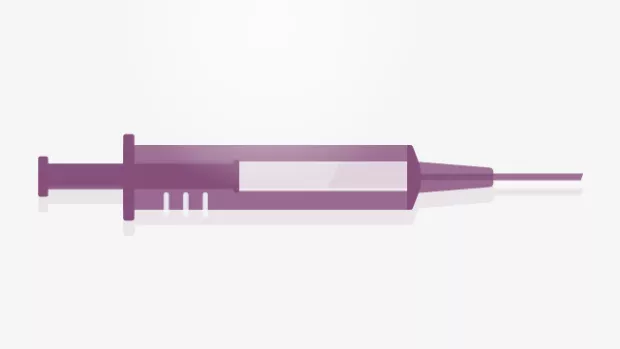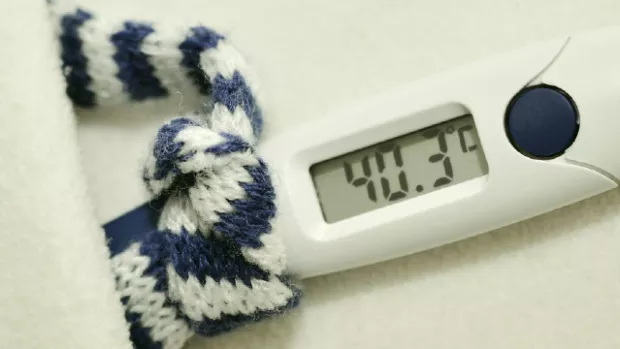
MS Society Medical Advisers on MS treatments and COVID-19 vaccines
We asked our medical advisers to answer your questions about what the new coronavirus vaccine means if you're on an MS treatment. This is their consensus statement.
MS, DMTs and COVID-19 vaccines consensus statement
Updated 14 January 2022 (first published 10 December 2020)
General risks
Based on what we know about the way these vaccines work, and high quality evidence from studies of other vaccines and MS, we don’t think they will exacerbate MS or its symptoms, provoke a relapse, or prevent DMTs from being effective. We have no reason to believe any COVID-19 vaccine will be dangerous for people with MS, including those on immunosuppressive drugs.
Furthermore, none of the leading COVID-19 candidate vaccines are ‘live’ – meaning they don’t contain any virus capable of causing infection – so should be safe for people on all types of disease modifying therapy.
MS DMTs and COVID-19 vaccine effectiveness
Some DMTs might reduce the effectiveness of any vaccine because they prevent the immune system from mounting a complete immune response to the vaccine. Therefore, the COVID-19 vaccine might be less effective for people that have recently taken or are taking certain DMTs.
Overall, it will generally not be advisable for people to substantially alter their MS treatment in hopes of increasing the efficacy of vaccines, because the potential harm would outweigh the potential benefit. Even a reduced response is likely to be better than none, so you should still get vaccinated even if on these therapies. And no one should stop their MS therapy unless specifically requested to do so by their MS team.
Below are our detailed thoughts on some DMTs and how they may impact on the effectiveness of COVID-19 vaccines:
Ocrelizumab (Ocrevus)
- Ocrelizumab (Ocrevus) may reduce the response to some vaccines. It may be beneficial to delay your first course of ocrelizumab in order to get the vaccine first. In general there would be limited benefit in delaying a second or third course in hopes of increasing vaccine effectiveness. We would have similar advice for anyone receiving rituximab.
- To keep delays to a minimum, where possible, someone awaiting ocrelizumab treatment should have 2 doses of vaccine 3 or 4 weeks apart, rather than having the doses 12 weeks apart. This is in line with the official “green book” guidance from Public Health England, which forms the basis of guidance across the UK (see pages 15-16).
- If you've recently had a course of ocrelizumab, you should ideally wait at least 12 weeks before having the vaccination.
Fingolimod (Gilenya), ozanimod (Zeposia) and siponimod (Mayzent)
- Fingolimod, Siponimod and Ozanimod are all sphingosine-1-phosphate (S1P) inhibitor treatments. On balance, S1P inhibitor treatments are unlikely to increase the risk of severe illness from COVID-19 infection. But some people taking these treatments have had a weaker response to COVID-19 vaccines.
- In general it would not be advisable to stop treatment in order to increase immune response to the vaccine. And you should never abruptly stop these drugs without careful consultation with your MS team.
Alemtuzumab (Lemtrada) and cladribine (Mavenclad)
- There may be a reduced response to a vaccine soon after alemtuzumab (Lemtrada) treatment, so waiting 3 months after an infusion before having a vaccination is recommended.
- You and your neurologist might consider delaying the second course of alemtuzumab (usually given after 12 months), but this delay risks the potential return of disease activity.
- There may be a reduced response to a vaccine with cladribine (Mavenclad) and it may be advisable to wait 3 months after a course before having a vaccine.
- A second course of cladribine is usually given after 12 months. It may be advisable to delay for 4 weeks to allow some flexibility, to schedule the vaccination in advance of your second course. A 4-week delay can be done without concern of a return of disease activity.
Delays to start treatment
For all 6 treatments mentioned above (ocrelizumab, fingolimod, siponimod, ozanimod, alemtuzumab, and cladribine), if starting for the first time, you should discuss with your MS team whether it might be preferable to wait until you have been vaccinated. The risks of this strategy will depend on your individual case and on the availability of the vaccine.
If you decide to get vaccinated first, it would generally be advisable to wait at least 2 to 4 weeks after you've had both doses of a COVID-19 vaccine before starting any of these DMTs - so the vaccine can take effect.
Haematopoietic stem cell transplantation (HSCT)
Haematopoietic stem cell transplantation (HSCT) will likely reduce response to the vaccine. You should wait at least 6 months after treatment before getting vaccinated.
Other DMTs
We have no reason to believe other DMTs available on the NHS will reduce efficacy of vaccines. This covers: glatiramer acetate (Copaxone and Brabio), teriflunomide (Aubagio), dimethyl fumarate (Tecfidera), beta interferons, and natalizumab (Tysabri).
Other important points
The current vaccines all require 2 doses and for some treatments (for example ocrelizumab, cladribine, or alemtuzumab) your MS team may advise you on specific timing in relation to this. For example you may be advised to wait until after your second dose of vaccine before a further course of DMT – or to resume treatment after a single dose of vaccine (delaying the second).
As with all vaccines, there is a risk of side effects with the COVID-19 vaccines available in the UK. The UK government is publishing weekly updates of all reported side-effects, which shows that in general they “happen shortly after the vaccination and are not associated with more serious or lasting illness”. A side effect of the vaccine could be a fever. A fever can make your MS symptoms worse temporarily, but they should return to prior levels after the fever is gone.
Until we know more about the vaccine, everyone with MS should continue to follow government advice to reduce the risk of catching and transmitting COVID-19 even if they have received a vaccine for COVID-19. People that are on the clinically extremely vulnerable list should continue to take extra precautions to protect themselves from catching the virus.
Early research suggests that ocrelizumab and fingolimod might reduce the body’s immune response to the COVID-19 vaccines. Read the MS Society research blog about this vaccine research
We would particularly emphasise that it takes some time after vaccination to achieve immunity, so it is crucial to maintain precautions after initial vaccination. It takes up to 28 days after the first dose of the Pfizer-BioNTech vaccine and up to 22 days for the Oxford-AstraZeneca vaccine to get some level of immunity. For both vaccines, the best response is achieved with two doses and you should receive the second booster dose when offered.
Everyone's risk is different and will depend on individual circumstances. You should have an opportunity to discuss the right choice for you with your MS team. Please note you do not need to contact your team to ask for the vaccine, you will be contacted proactively by your GP.
Read more information about vaccine allocation and priority
There is lots we don’t yet know about the effectiveness of these vaccines for people with MS, and those taking DMTs. We understand this might make a decision regarding your care and treatment hard to make. Please be assured we’re constantly reviewing the guidance, data and information to better understand this, and we’ll do our absolute best to keep the MS community informed.
Take our MS Register survey
The more you tell us about your thoughts on COVID-19 and vaccines, the easier it is for us to provide the right information.
If you have MS, please take a few minutes to fill out our MS Register survey.
How we can help
We're here for you. If you’re worried about your MS and coronavirus and want to chat to someone, call our MS Helpline on 0808 800 8000. We’re here Monday to Friday, 9am to 7pm except bank holidays.
You can also read more about COVID-19 vaccines and advice about staying safe during the pandemic.



